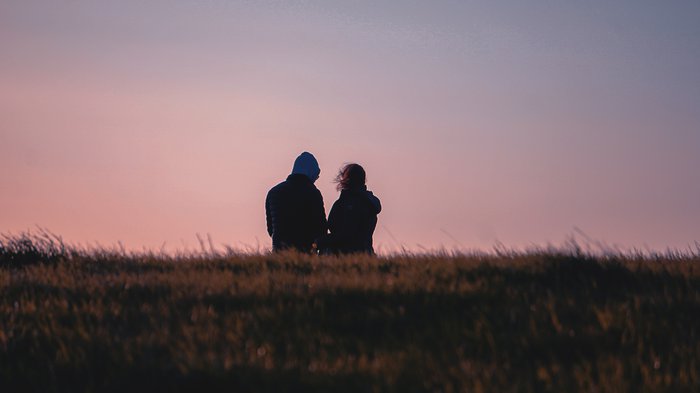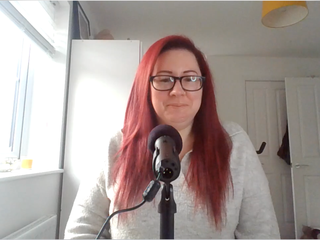Because family life doesn’t stop for treatment
Sue’s husband John has a rare type of non-Hodgkin lymphoma. He was treated with a drug called rituximab over a two-and-a-half year period. Sue explains how she got John, herself and their child through it.

This story is a true account of a family’s experience of living with blood cancer, but the names have been changed to protect their privacy.
Rituximab isn’t usually considered very toxic but for John, treatment was hard. He was utterly wiped out after each dose and couldn’t get off the sofa. He felt sick, he had mouth ulcers and bleeding gums. He reacted badly to high doses of paracetamol and ibuprofen never sat well in his stomach. His skin broke out into sore welts, and he had recurring eye infections.
I gather it’s not always like this, that’s just how it was for us. But the treatment was our only chance, and it was helping, so we kept going.
I had to work out quickly how we were going to cope as a family as we had a young child and no family close by to help.
I’m not going to pretend it was easy, but with planning we got through it. For instance, I often had to arrange for someone else to do the school pick up. If it wasn’t going to be me, I always told the school in advance, then they would tell my child before he went out, so he knew who to look out for. We remain grateful to those people who did this at short notice with such good grace – and for the playdates and dinners that often were involved.
I have a child, so life had to be organised or the whole thing grinds to a halt – and that’s not the way to model coping to your child.
Shopping and eating
Treatment day was Tuesday. I would drive John to hospital and wait (I wasn’t allowed to be with him), and he’d be so exhausted afterwards, there was no chance he could look after our child while I nipped to Asda to get dinner. So I had to think ahead and have everything we needed in, including lollies and ice-pops to help with the sore mouth John would have after treatment.
I’d cook the night before treatment. I’d make something easy to eat – something like a chicken curry or a soup – because sometimes it was an effort for John just to lift the fork, let alone cut something up.
I’d read that treatment affects your taste and you’re often too knackered to eat, so you need things that taste of something. John really got into smoothies – if he couldn’t manage solid food, he’d at least have some good stuff. If he got too hungry, he started to shake, so we had to keep his calorie intake up as much as possible.
I’d say definitely accept help with shopping or meals when it’s offered – it’s easier to do that from the start rather than during the process. I was recently helping someone out who is having a hard time, and they were laughing at my insistence of accepting help when I had been so bad at it. I was able to reliably tell them, “You’re benefiting from what I got wrong.”
If someone says, ‘I‘m going to make your dinner tonight, I’m making lasagne is that OK?’ just say, ‘I really appreciate that, thank you.’
In general, we had to hide ourselves away as a family, even before covid. We would arrange to get together with people but might not be able to make it at the last minute because John wasn’t up to it.
We also had to be particularly careful for two weeks after treatment, because John was so immunocompromised. We asked people not to come round if they had a hint of a sniffle. Most of the time we didn’t need to ask though, as they would change plans if they felt unwell.
Work and pay
When John was first diagnosed, I was working part-time, but I took a few months off because trying to work was like breaking myself in two. As John couldn’t work, I was worried about reducing my pay too, but luckily under my contract I got full pay for the time I was off. These are difficult situations and if you need to ask what your contractual rights are, it is okay to do so and people understand.
John received full pay for 13 weeks. He then got ESA (Employment and Support Allowance), and after six months some insurance he had through work kicked in. On top of that, his colleagues pushed an envelope of collected money through our door every month. Even so, we’ve lost out financially, but you learn to manage.
When it was time for me to go back to work, the only way I could do it was with a meticulous plan.
I had to manage my work diary very carefully. John was still having treatment on Tuesdays, and that could take several hours.
I made sure I was only contactable by email and didn’t book any appointments that day. I couldn’t be out on a visit miles away as I had to take John to hospital because he would be too exhausted to drive back. I found out there was a Maggie’s Centre next door to the hospital, where I could find a comfy seat and piggyback their Wi-Fi so I could work.
People’s reactions at work can vary, but I learned to not apologise for a situation that changed how I could work for a while. Most folk will genuinely have no problem if you explain your situation – if anything they won’t want to make anything harder for you. Covid was a little different though and there were times it was difficult to explain about shielding and it not being safe to mix even after shielding stopped, because the vaccines were less effective for someone like John.
Being a carer
The problem with the word “carer” is that the vast majority of people think carers wipe bottoms. But if you’re partly responsible for the physical, psychological and emotional health of someone else then you’re a carer, and there’s not half enough done for us.
I have used being a carer to claim my rights. For instance, I was happy to register as a carer so I could get an earlier covid vaccination to help protect John.
I hate to let people down, so if I think I can’t commit to something, I will lay the groundwork by explaining that I am a carer. I don’t like it, but I have to give myself permission to do that now.
What I’d like to say to anyone supporting someone through treatment is that your situation is your situation, and you will find your own way through it. Just remember it doesn’t have to be a perfect way, and you don’t have to get it right every time.
See our carers' guide to supporting a loved one through treatment, including useful things to know and tips from other people.
We also have information about your rights as a carer, including benefits you may be entitled to.

Blood Cancer Heart to Heart podcast for family and friends
"I thought this is it. I’ve driven here as your girlfriend, and I've left as a doctor, a pharmacist, a nurse, a carer - everything all rolled into one."
